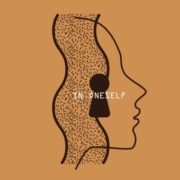Day 21: The Discomfort of Imagining More
BY MARILYN NASH | March 14, 2023
Today’s Readings
I recently spent several truly consoling days among Jesuit leaders from across the country devoted to contemplating Ignatian Spirituality in the context of racial justice. A colleague approached me after I had the honor of preaching at our closing mass, asking how I was so comfortable speaking about faith and the culture of racism.The question nudged me out of my ego as I tried to turn the assumption of comfort upside down. As a woman taught to believe in my whiteness, I need to be committed to more discomfort, not less. When I become too content or overconfident, I stop listening for the most important questions.

Today’s gospel makes me uncomfortable. It feels messy, linking radical forgiveness and mercy with power—even more so with money. I am reminded that the artful power of parables is not in simple, unmistakable lessons, but in their ability to provoke a crisis of thought rooted in the context of the listener.
In 2023, in the wake of a pandemic, whose chaos laid bare inequities across so many systems, it feels impossible—even sinful—to disregard money and power as mere metaphors. I long for a story that does not end with a wealthy king torturing and jailing his impoverished neighbor—no matter what he’s done.
All I have are discomforting questions.
Do we forgive only the debts of those willing to beg for their humanity?
Aren’t power and dominion called to the much deeper work of conversion, beyond just simple, individual acts of benevolence?
Read through a lens of dominance and wealth, the story tempts those with power into believing that both just-mercy and swift judgment are measured out in arbitrary gestures from positions of financial and moral comfort.
What if, instead, we interrogate systems built on debt and servitude?
What if those with more access to power and privilege listen for the questions that arise from discomfort more than the judgment that comes from certainty?
Jesus persistently invites us to turn our perspectives upside down as a way of igniting our imagination, and expanding our hearts—readying us for something beyond what is now, something new.
For Reflection:
- This Lenten season, what if we trust that our troubling questions and longing for MORE are exactly what we need?
- What if they are the very questions that will lead us to discover God’s imagination amidst the chaos of injustice?
Marilyn Nash teaches Ignatian Spirituality at Seattle University and is a spiritual director & consultant for Jesuit works, faith communities, and individuals particularly regarding spiritual discernment amidst a culture of racism.









These are exactly the words I needed to hear today: “As a woman taught to believe in my whiteness, I need to be committed to more discomfort, not less. When I become too content or overconfident, I stop listening for the most important questions.” Thank you!
As a white woman involved in work for racial justice, sometimes it can be incredibly difficult to keep from reproducing the exact patterns of white supremacy I’m trying to fight. I am grateful for generous friends and patient colleagues who serve as accountability partners for me in this work, helping me notice where I continue to trip up and to fail in my efforts to divest from this harmful system. It is, in the end, the work of becoming more human, and while the learning can be painful, the end result is the Beloved Community that God has always envisioned for us. The work is worth it.
Right on! Corporate “sin” affects many, many more people than individual acts. Yet, for many, the individual acts of kindness are carried out with great vigor, but with complete blindness to the systemic acts that put so many more at a disadvantage. We need to be consistent in our kindness.
Also, the gospel seems to champion a punitive justice, yet psychologists know that punitive justice does not really work in changing hearts. It just force us into looking good, but meanwhile our unhelpful beliefs persist and become more and more disguised. Punitive justice really just makes changing hearts harder…
Punitive justice maintains the status quo. And those who have continue to exploit those who have not. Our prisons are full of the poor society scape goats, people who don’t have the money to pay good lawyers. Or the homeless just in case they might be drug dealers.
Change of heart happens when we treat those with compassion as Jesus would and we recognise there but for the grace of God go I.
Though short and sweet, life is sacred in the body of a black, brown, yellow, and white.